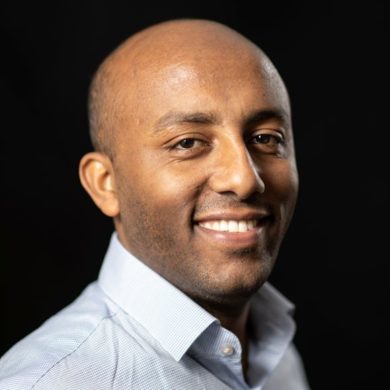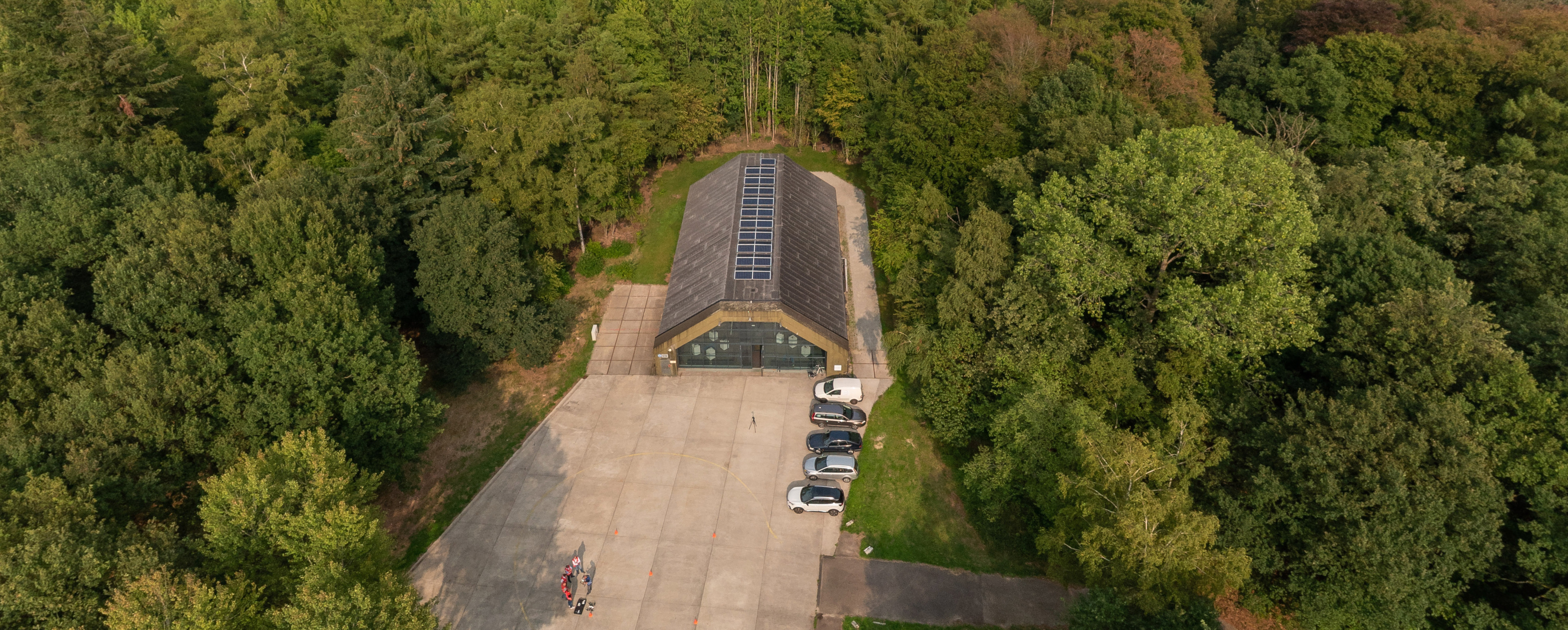How can we develop new technologies to solve urgent societal challenges? That’s the question going through Abeje Mersha’s mind every day. The professor of unmanned robotic systems at Saxion University of Applied Sciences has made it his mission to develop smart mechatronic and robotic systems that can ensure the perpetuation of life for all humanity. We share the story of this frontrunner in Twente.
At the Mechatronics Research Group, Abeje and his colleagues work on mission-driven, application-oriented, collaborative research. “That describes what we do: our focus is not on technology push but on market pull. What real challenges do companies and public organizations face, particularly in the region? And how can we contribute using robotics, mechatronics, and AI? For example, how can we improve the safety of firefighters? A solution could be to use a firefighting robot. Or, in another scenario, using a flying hand to do maintenance of wind turbines could be a solution to make them more productive and safer for maintenance workers. Our main task is to use new scientific insights and convert them into practical knowledge to develop innovative products, services, or processes. So, our research is mission-driven: we develop innovative solutions not just for the thrill of it.”
Bringing science to society
Before starting his job at Saxion, Abeje was unaware of what Saxion does, both its educational as well as applied research activities. Abeje: “My former colleagues were surprised to learn I was joining Saxion after finishing my Ph.D. at the University of Twente. Particularly my Dutch colleagues, who knew my caliber, were very doubtful if there would be enough challenges for me at Saxion. But to me, it was an opportunity for a completely new challenge. Growing up in Ethiopia, I knew I felt a sense of fulfillment by sharing knowledge. Therefore, the question was: how could I combine that with scientific innovation, which I enjoyed very much? And how could my work contribute to society? The position at Saxion combined all that. Another thing that was appealing to me at Saxion was the fact that the applied research on unmanned robotic systems was in its infancy, if not nonexistent. There was an opportunity to shape the field. Now, eight years later, it’s one of Saxion’s most well-known research areas. I’m really proud of what we have achieved together with our colleagues, students, and public and private partners.”
Unrestricted access
The research group could highly count on the support of their faculty and executive board, as well as that of their public and private partners – in particular, the innovation clusters Space53 and TValley. Abeje explains: “They are our reliable partners who are boosting our innovations. They bring in practical questions from society and the market, so they help us match what society needs with what we can offer. Furthermore, they facilitate us in disseminating the new knowledge we develop so that the cluster partners can apply that knowledge in their businesses. SMEs especially benefit from it, as they are the backbone of our economy. That way, the knowledge trickles down into society. An additional advantage of Space53 is the physical space, where we have unrestricted access and unlimited opportunities to test our experimental robots on land and in the air. The collaboration with these clusters helps us to raise the maturity level of the technology we develop.”
Curious guy
While Abeje has made quite the name for himself and his research group, it wasn’t always the plan to come to the Netherlands and make waves in the world of unmanned robotics. “I’ve always been a curious guy, and I’ve always had an interest in technology. Growing up as a kid in Ethiopia, I was fascinated by how devices like TVs and radios worked. So, I decided to do my bachelor’s in electrical engineering at Mekelle University, Ethiopia. I was one of the top students, and after I graduated, I was offered to stay as a lecturer at the university. However, after a year, I knew I wanted to develop my knowledge further and pursue an academic career. I applied for a master’s and got several scholarships, of which two were in the Netherlands. When my wife decided to go to the University of Twente for her study, the choice became a lot easier for me. During my master’s in systems and control engineering, I also followed courses on advanced robotics, making me even more curious about the field. It felt like uncharted territory at that time, which excited me a lot. The rest is history.”
Perpetuation of humanity
And while he’s possibly making history, Abeje also has a dream for the future. “In ten years, I would be happy if we already have a public and privately owned Smart Mechatronics and Robotics institute, which is a breeding ground for talent and sustainable, innovative spin-offs and spin-outs. That way, we positively impact humanity and the planet we live on. Because, in the end, what we do should always be to make the world a better place. That sounds cliché, but to me, it means that the world is sustainable only if everyone gets an equal opportunity to access new knowledge and resource and if we’re kind to our planet. If I can play my small part to contribute to the perpetuation of all humanity with my work, I would be extremely satisfied.”



